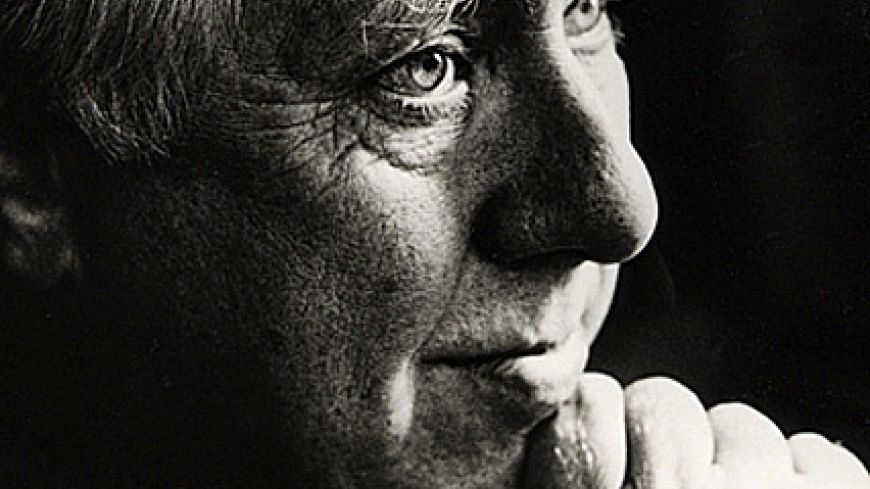
There are few speakers who attend the Edinburgh Book Festival who can command an audience the way Roy Hattersley does. In this event, entitled "Creating A Template For A Liberal Coalition", Hattersley was introduced by EIBF director Nick Barley as one of a very few authors who have attended every year since 1983.
As a former deputy leader of the Labour Party he has a wealth of experience of politics and he showed his wide ranging grasp of political history in this introduction to his latest book, "David Lloyd George" who led the Coalition Government in 1916 for six years.
Hattersley felt that Lloyd George has been a Prime Minister who has been ignored and forgotten by many. He felt this was shown when you contrast the enormous number of books which have been written about Churchill. compared to two about Lloyd George in the last fifty years.
Lloyd George was born, David George, in Manchester in 1863 and his father died in the year of his birth, so he was cared for by his mother who was an itinerant school teacher. However, his uncle Lloyd, whose name he later assumed with his own, was a huge influence upon the young man encouraging him to go into law and politics.
His venture into politics almost ended prematurely when a certain Mrs Jones arrived at the Party headquarters to claim that their candidate was the father of her unborn child. The lady was paid off and Lloyd George was elected, becoming the youngest MP in the House.
Hattersley felt that Lloyd George was not really a Liberal, although he supported the most radical Liberal policies. It was his opposition to the Second Boer War and his attacks on Chamberlain that marked him out as a future leader of the Party.
He entered the Cabinet as President of the Board of Trade in Henry Campbell-Bannerman's Government in 1906. Here he showed himself to be highly competent, setting up important bodies such as the Port of London Authority and he managed to stop a proposed railway strike by brokering a deal between the railway companies and the unions - which the companies did not recognise.
When Asquith became Prime Minister on Campbell-Bannerman's death, Lloyd George became Chancellor. He was instrumental in introducing financial help for the sick and the infirm which paved the way for the social support system we have today. But this came at a price which was increased taxes which angered many, as did his plan to reduce the number of Royal Navy Dreadnoughts from six to four.
The Marconi scandal in 1913 would today have been the end of his career as he was at least "economical with the truth" when denying he had not speculated in the shares of the company, when in fact he had invested in the American arm of the company.
He survived and managed to see off those who also expressed concern about his behaviour with women. Hattersley described him as making statements which were, "dripping with the wax of sanctity". His relationship with his secretary, Frances Stevenson was distinctly shady, as right from the initial interview, he made it clear that the job entailed more than, "simply being a secretary".
Initially an opponent of the war, he changed his view when war broke out and became a highly efficient Minister of Munitions increasing production significantly. He moved on to become Secretary of State for War, but as it became clear that Asquith was a poor planner he found he was forced out of office and Lloyd George took over. Although a very capable leader, he was unpopular in his own Party and Hattersley also described how Lloyd George tried to limit the power of the senior Generals and was accused of withholding reinforcements in the UK so that Haig could not launch further offensives. Lloyd George survived the Commons debate and went on to ensure victory.
He was a very successful peacetime, post-war Prime Minister winning a massive landslide with his Liberal Coalition in which the Conservatives had a majority of seats - possibly, mused Hattersley, there are lessons to be learned by certain people today.
In questions, Hattersley was asked to name the three most outstanding Prime Ministers of the modern era; he chose, Lloyd George (1916-1922), Clement Atlee (1945-1951), and Margaret Thatcher (1979-1990) explaining that this was for the long term changes they delivered to the country.
Hattersley said that Lloyd George constantly expressed "regret" about things, but never meant it!
Would he have survived today? Certainly not in Hattersley's view. He had far too many sexual scandals and his distribution of honours would be seen as bizarre today.
Event: Tuesday, 23 August 2011, 13:30

